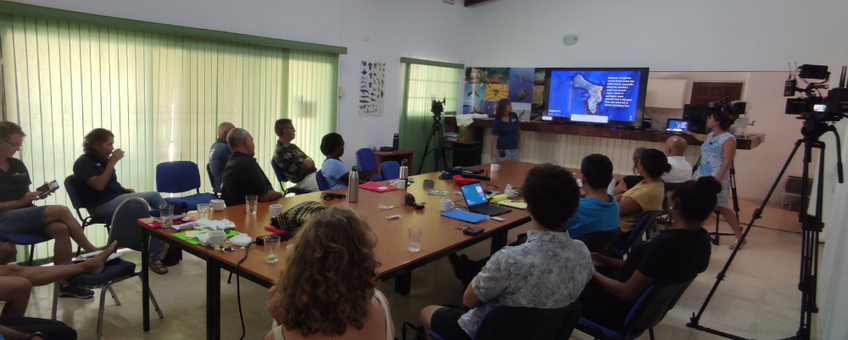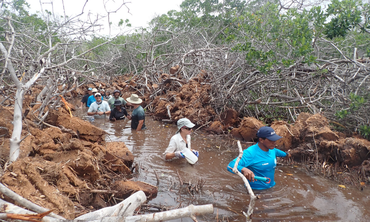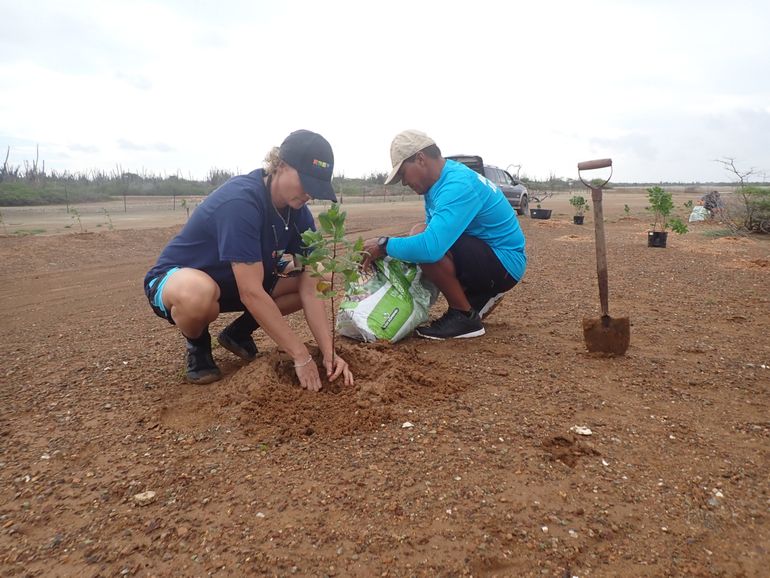
Bonaire hosts international Mangrove Restoration Workshop
Dutch Caribbean Nature Alliance (DCNA), Mangrove ManiacsInternational collaboration
Representatives from around the world including Aruba, Bonaire, Curaçao, the Bahamas, Jamaica, St. Lucia, Martinique, the Netherlands, Mexico, Belize, Costa Rica and the United States tuned in to share ideas for mangrove restoration practices. Throughout this four-day event, participants engaged in meaningful dialogue, swapping ideas and tips on ways to maximize conservation efforts. In addition, the last two days provided hands-on experience in mangrove restoration, building and maintaining mangrove nurseries, as well as outplanting both along the coast and within degraded areas.
Funding and support was provided by the Regional Activity Centre for the Specially Protected Areas and Wildlife (CAR SPAW), Mangrove Maniacs, STINAPA Bonaire and the Dutch Caribbean Nature Alliance. Presentations throughout the workshop spanned from expert university partners to representatives from NGOs and enthusiastic citizens. In total, over twenty people were able to attend the workshop in person and over fourty participants logged in to attend the workshop virtually.
Lessons learned

In addition to creating new networks and collaborative partnership opportunities, this workshop provided first hand experience in the field of mangrove restoration. Mangroves continue to gain recognition, not only for their ability to provide critical habitats and coastal protection, but also as a significant tool for building resilience against climate change. This workshop provided key insight into the importance of maintaining environments to serve as carbon sinks as well as the ability to leverage blue carbon in future reporting and financing prospects.
DCNA’s director, Tadzio Bervoets, took the opportunity to stress the importance of supporting and growing research and education opportunities for students within the Caribbean region. Caribbean islands have the unique ability to showcase a wide variety of natural habitats, perfect for conducting research and staying on the cutting edge of habitat restoration and conservation techniques. Fostering this thirst for knowledge and educational growth within local Caribbean populations will be key to pushing the Caribbean to the forefront of environmental research. Knowledge sharing opportunities, such as these, provide unique opportunities to bring together a wide range of people to maximize communal understanding of mangrove forests. As climate change and human-driven pressures continue to increase, interventions from all levels will be required.

More information
To learn more about the workshop, please visit the Mangrove Maniacs’ webpage. From here you will find links to most of the presentations as well as contact information for presenting participants. For more information on how you can get involved, contact your local park authority or join the Mangrove Maniacs mailing list by using this link.
Text: Dutch Caribbean Nature Alliance
Photos: Mangrove Maniacs; Jessica Johnson
